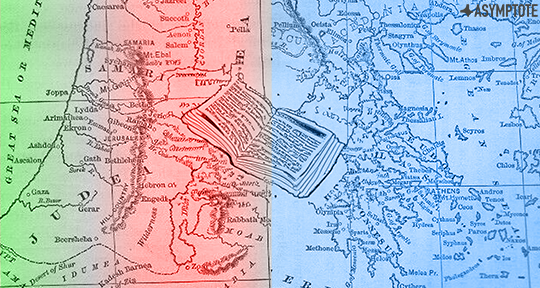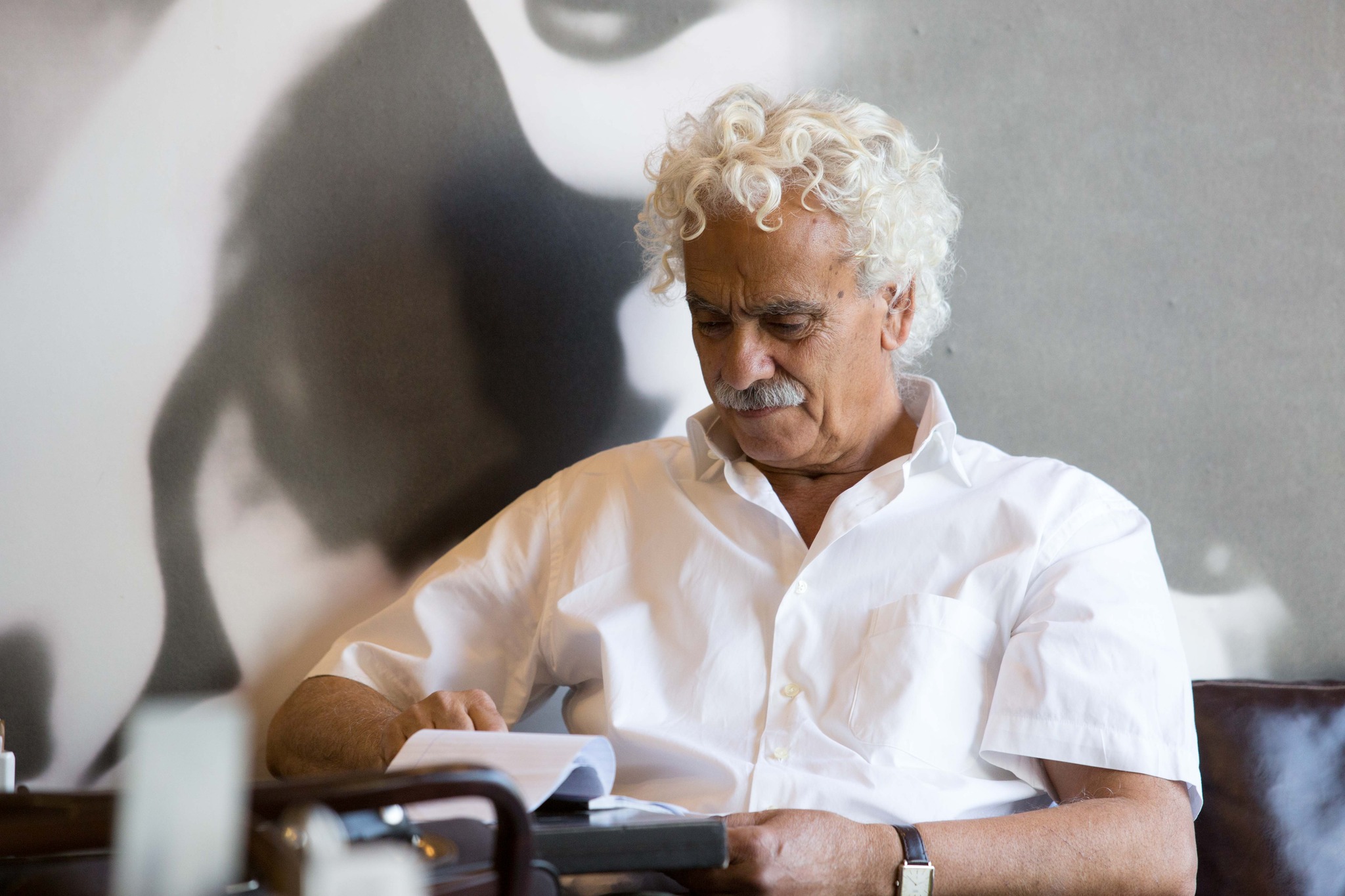Palestine and Greece have long enjoyed a strong relationship of solidarity and friendship, fortified by mutual assistance during political tumults, expressions of recognition, and profound demonstrations towards peace and independence. In this essay, Christina Chatzitheodorou takes us through the literature that has continually followed along the history of this connection, and how translations from Arabic to Greek has advocated and enlivened the Palestinian cause in the Hellenic Republic.
Following the Israeli invasion of Lebanon and the siege of Beirut in 1982, the Palestinian Liberation Organisation (PLO) was forced to leave the city. Its leader, Yasser Arafat, then fled Beirut for Tunisia, and, in fear of being captured or assassinated by Israel, he asked his Greek friend Andreas Papandreou for cover. The two had previously joined forces during the dictatorial regime in Greece known as Junta or the Regime of the Colonels, in which Arafat supported the Panhellenic Liberation Movement (Panellinio Apeleutherotiko Kinima/PAK) founded by Papandreou, and had also offered training in Middle Eastern camps to the movement’s young resistance fighters.
Arafat arrived then from war-torn Beirut to Faliron, in the south of Athens. He received a warm dockside reception by the then-Prime Minister Papandreou and other top government officials, as well as a small crowd consisting mostly of Greek Socialist Party (PASOK) members and Greece-based Palestinians, who stood by chanting slogans in support of the Palestinian cause. Papandreou called Arafat’s arrival in Athens a “historic moment” and assured him of Greece’s full support in the Palestinians’ struggle; after all, while Arafat was coming to Athens, accompanied by Greek ships, pro-Palestinian protests were taking place around the country almost every other day.
Although our support and solidarity with the Palestinian cause neither began nor stopped there, that day remains a powerful reminder of the traditional ties and friendship between Greek and Palestinian people. But more importantly, it comes in total contrast with the position of the current Greek government. Now, despite the short memories of politicians, it is the literature and translations of Palestinian works which continue to remind us of Greece’s historical solidarity to Palestine, particularly from left-wing and libertarian circles.




